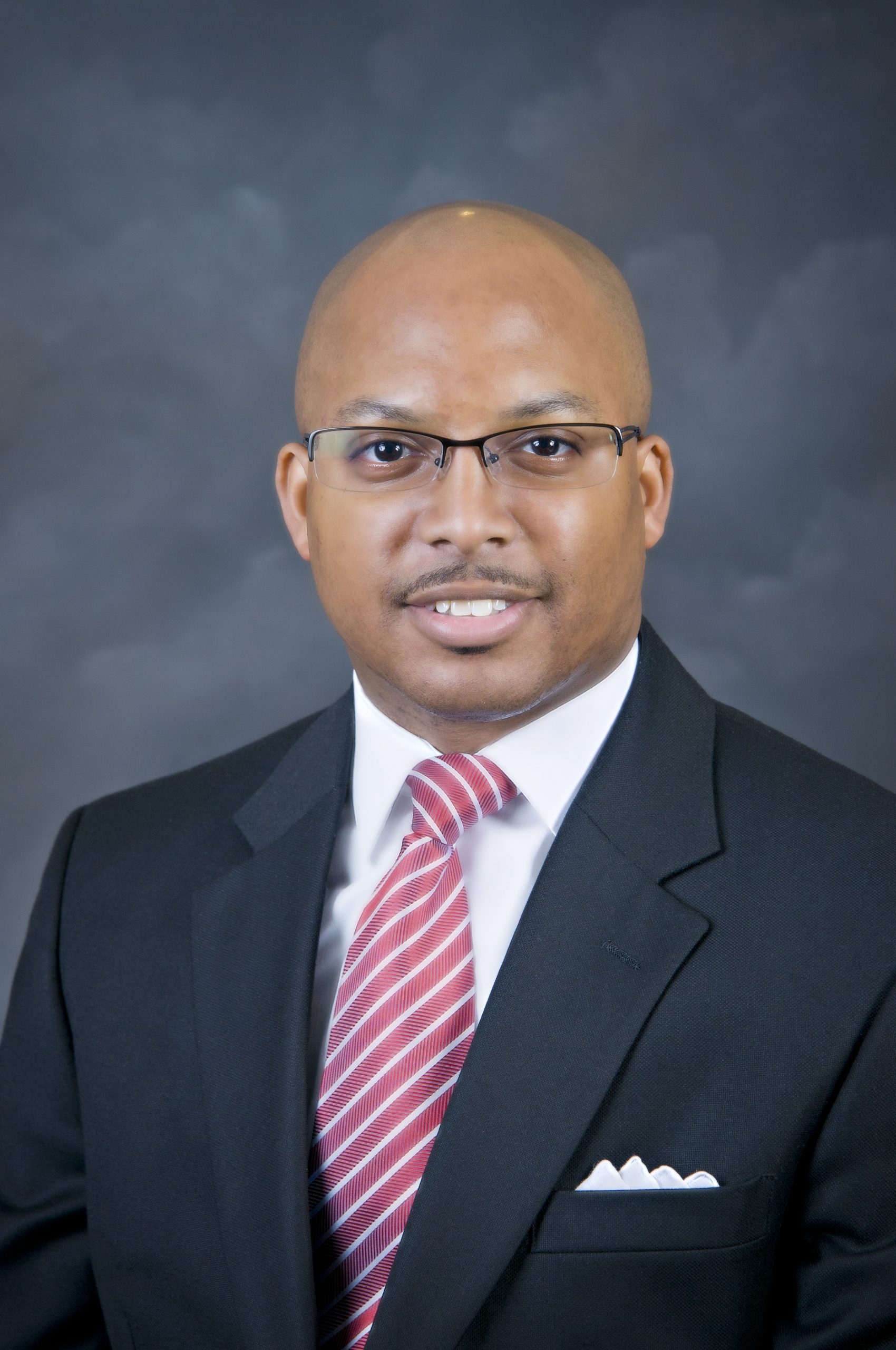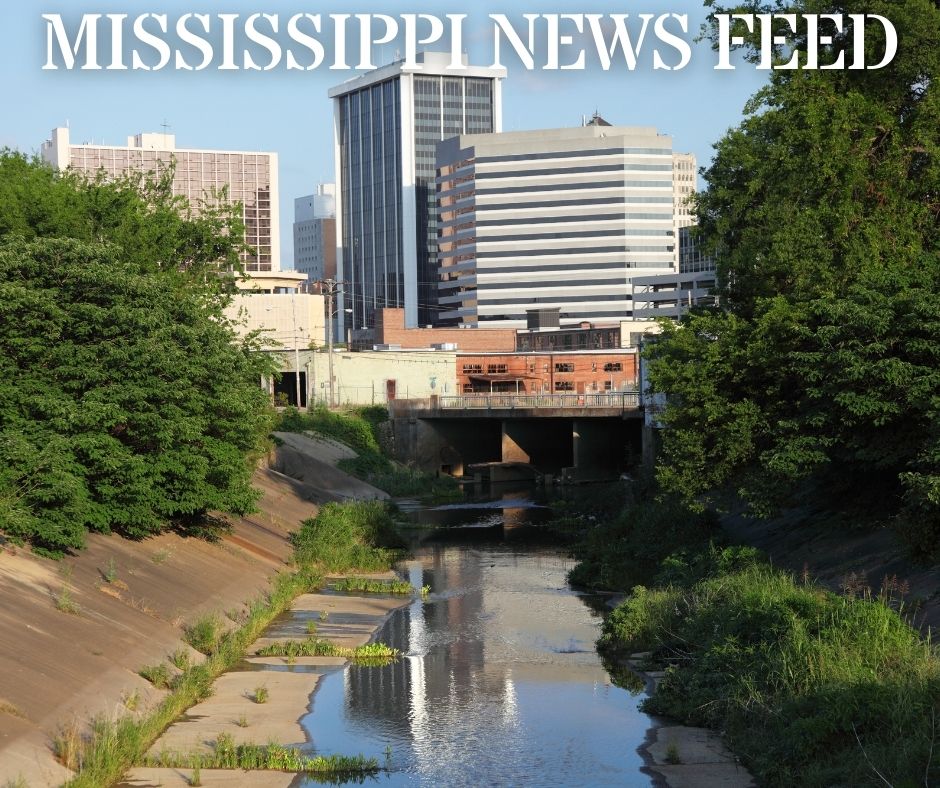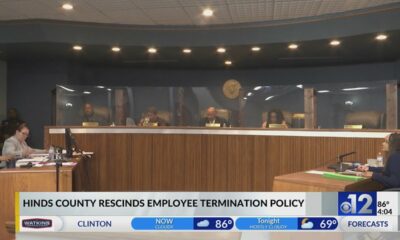Mississippi Today
IHL board picks internal choice to head JSU

The Institutions of Higher Learning Board of Trustees named Marcus Thompson, a deputy commissioner, the 13th president of Jackson State University by the Institutions of Higher Learning Board of Trustees. He will start on Nov. 27.
Thompson, who has worked at IHL since 2009, has no experience leading a university, and his appointment is reminiscent of IHL's decision to hire Glenn Boyce to head the University of Mississippi, even though Boyce lead IHL's search for that university. Both decisions eschewed search candidates in favor of an internal hire.
Thompson would not say if he had applied for the job, but he did complete an interview.
“That's a hiring issue for the board,” Thompson told Mississippi Today. “I don't really feel comfortable talking about the internal process.”
There's much at stake with this hire: Thompson will be watched closely by a university community that doesn't want this presidency to end in resignation like the last three. The decision comes about a month after IHL was scheduled to make this hire and was made during executive session at the board's regular meeting Thursday.
“I don't even think of this in terms of the title of ‘president,'” Thompson said. “In my heart, it's about being a servant leader for all of our stakeholders.”
Trustee Steven Cunningham, the only Jackson State alumnus on the board and the chair of the presidential search, did not attend the meeting in person to take questions from the media. He did not answer a call from Mississippi Today.
“The Board selected a leader who knows the unique historic importance of the university who will articulate a bold vision for the future and will be indefatigable in the pursuit of excellence for Jackson State University,” Cunningham said in IHL's press release.
The leadership turnover at Jackson State, the largest historically Black university in Mississippi, has also affected progress on key issues that have hurt enrollment, like campus security, housing shortages and an aging water system. Other ambitious goals, like a new football stadium, have fallen to the wayside.
“One of the things I've gained over the years is a lot of knowledge of all the working areas of the university,” he said. “Because of my work, I know about the institutions. I've worked with a lot of state officials, legislators. There were already a lot of good relationships there.”
That means Thomspon will have to hit the ground running for the legislative session.
“Marcus Thompson has a deep understanding of the vital role HBCUs play in higher education,” Sen. Sollie Norwood said in IHL's press release. “His proven leadership will serve him well in taking Jackson State University to new heights.”
Thompson will also need to work to increase trust between IHL, administration and stakeholders like faculty and staff who supported Temporary Acting President Elayne Hayes-Anthony and criticized the presidential search process as lacking transparency.
READ MORE: Only JSU alum on IHL board votes against allowing acting president to apply for permanent role
“Obviously, I'll spend a lot of time listening to all of the stakeholders on campus,” Thompson said.
Though Jackson State's financial position has largely recovered from Carolyn Meyers' tenure, Thompson is also facing concerns that have been raised this year about possible misspending of restricted dollars by the cash-strapped Jackson State Development Foundation.
At listening sessions earlier this year, the community asked the board to bring someone new to the university — a point that multiple trustees took note of.
“Stop hiring your friends,” said Carrine Bishop, a faculty member whose family has deep roots at JSU. “ We need to vet every individual.”
Thompson earned a Bachelor of Arts degree in history and Spanish and a Master's degree in Education from Mississippi College. He holds a Doctor of Philosophy degree from Jackson State University in urban higher education
IHL made the decision during the executive session at Thursday's board meeting, the last meeting of the year. Trustees were increasingly under pressure to choose a president to lead the historically Black college in Mississippi's capital city.
“We definitely need to make a decision,” the current board president, gastroenterologist Alfred McNair, said before executive session. “That's the biggest thing we need to do.”
McNair added that the board was aware of the community's feeling that Jackson State could have avoided the past three resignations if IHL had done a better job of looking into candidates' backgrounds.
“We're doing our best job to get all the information we can as far as background checks,” McNair said, shaking his head. “We're doing the best job we can to make sure we choose the right person. We've taken a long time – longer than usual – because we're really trying to make sure we cover all areas A to Z.”
Jason Johnson, the Jackson State student body president, said his biggest question is what will the university's next permanent president do to address campus security in the wake of an unsolved shooting that killed one student leader in an on-campus apartment complex.
If he had the chance, Johnson said he would have asked candidates “what are your intentions as far as student public safety?”
Johnson added it was important to him that Jackson State's new president have experience in higher education.
After the meeting, most trustees refused to take questions. Alfred Rankins, the IHL commissioner, escorted trustee Jeanne Luckey in her wheelchair through a gaggle of TV reporters, repeatedly saying “no comment” before going into a sideroom.
McNair also said “no comment.”
This article first appeared on Mississippi Today and is republished here under a Creative Commons license.
Mississippi Today
On this day in 1983


May 6, 1983

A federal judge sentenced Raymond Bledsoe to life for beating Black jazz saxophonist Steven Harvey to death in a Kansas City park because of his race.
A Missouri jury had acquitted Bledsoe of murder, and afterward, he reportedly bragged to his girlfriend about killing a “n—–” and getting away with it.
Harvey's family members, Alvin Sykes and the Steve Harvey Justice Campaign convinced federal authorities to pursue the case. At the time, the conviction was reportedly the fourth under the Civil Rights Act of 1968.
In 2013, federal corrections authorities denied parole to Bledsoe. To date, he remains the longest serving inmate convicted under that Civil Rights Act.
Sykes later helped bring about both the Justice Department's reopening of the Emmett Till case and the passage of the Emmett Till Unsolved Civil Rights Crime Act.
Sykes died in 2021, and his New York Times obituary read, “Though he never took a bar exam, Mr. Sykes was a brilliant legal and legislative operator whose admirers included City Council members, politicians and U.S. attorneys general from both parties. … He led a monk's life in the name of social justice. He rarely held a job, wore second hand clothing and lacked a permanent address for long stretches of time, staying with friends instead and living off donations and, later, speaker fees. He never learned to drive and so walked everywhere, most often to the reference section of the library in Kansas City, Missouri, where he did his research, or to a booth at a restaurant that he used as an informal office, his papers surrounded by cups of coffee and stubbed-out cigarettes.”
This article first appeared on Mississippi Today and is republished here under a Creative Commons license.
Mississippi Today
Podcast: How the 2024 Medicaid expansion debate died

Mississippi Today's Adam Ganucheau, Bobby Harrison, Geoff Pender, and Taylor Vance discuss the breakdown of Medicaid expansion negotiations in the Legislature.
This article first appeared on Mississippi Today and is republished here under a Creative Commons license.
Did you miss our previous article…
https://www.biloxinewsevents.com/?p=355689
Mississippi Today
On this day in 1917
May 5, 1917

Eugene Jacques Bullard became the first Black American combat pilot.
After the near lynching of his father and hearing that Great Britain lacked such racism, the 12-year-old Georgia native stowed away on a ship headed for Scotland. From there, he moved to Liverpool, England, where he handled odd jobs before becoming a boxer, traveling across Europe before he settled in Paris.
“It seems to me that the French democracy influenced the minds of both White and Black Americans there and helped us all to act like brothers as near as possible,” he said. “It convinced me, too, that God really did create all men equal, and it was easy to live that way.”
When World War I began, he was too young to fight for his adopted country, so he and other American expatriates joined the French Foreign Legion. Through a series of battles, he was wounded, and doctors believed he would never walk again.
No longer able to serve in the infantry, an American friend bet him $2,000 that he could not get into aviation. Taking on the challenge, he earned his “wings” and began fighting for the French Aéronautique Militaire.
He addressed racism with words on his plane, “All Blood Runs Red,” and he nicknamed himself, “The Black Swallow of Death.”
On his flights, he reportedly took along a Rhesus monkey named “Jimmy.” He tried to join the U.S. Air Service, only to be turned away because he was Black. He became one of France's most decorated war heroes, earning the French Legion of Honor.
After the war he bought a Paris nightclub, where Josephine Baker and Louis Armstrong performed and eventually helped French officials ferret out Nazi sympathizers. After World War II ended, he moved to Harlem, but his widespread fame never followed him back to the U.S.
In 1960, when French President Charles de Gaulle visited, he told government officials that he wanted to see his old friend, Bullard. No one in the government knew where Bullard was, and the FBI finally found him in an unexpected place — working as an elevator operator at the Rockefeller Center in New York City.
After de Gaulle's visit, he appeared on “The Today Show,” which was shot in the same building where he worked.
Upon his death from cancer in 1961, he was buried with honors in the French War Veterans' section of the Flushing Cemetery in Queens, New York.
A sculpture of Bullard can be viewed in the Smithsonian National Space and Air Museum in Washington, D.C., a statue of him can be found outside the Museum of Aviation, and an exhibit on him can be seen inside the National Museum of the U.S. Air Force, which posthumously gave him the rank of a second lieutenant. He is loosely portrayed in the 2006 film, “Flyboys.”
This article first appeared on Mississippi Today and is republished here under a Creative Commons license.
-
SuperTalk FM4 days ago
Driver’s education set to become mandatory in Mississippi as bill passes
-
SuperTalk FM3 days ago
State approves $160M to expand Highway 7 to four lanes in Lafayette County
-
Mississippi Business5 days ago
Geartek expanding operations in Alcorn County
-
Mississippi News6 days ago
Two women accused of shoplifting across southeast captured in Mississippi
-
Mississippi News4 days ago
Altercation at Mississippi police department leads to officer-involved shooting
-
Mississippi News1 day ago
Winston Co. Sheriff’s Office investigates shooting at Dave’s Club
-
Mississippi News6 days ago
Starkville police make arrest in shooting at Dawg Wash South
-
Our Mississippi Home6 days ago
Make Your Taco Tuesday Healthy With More Fiber







































